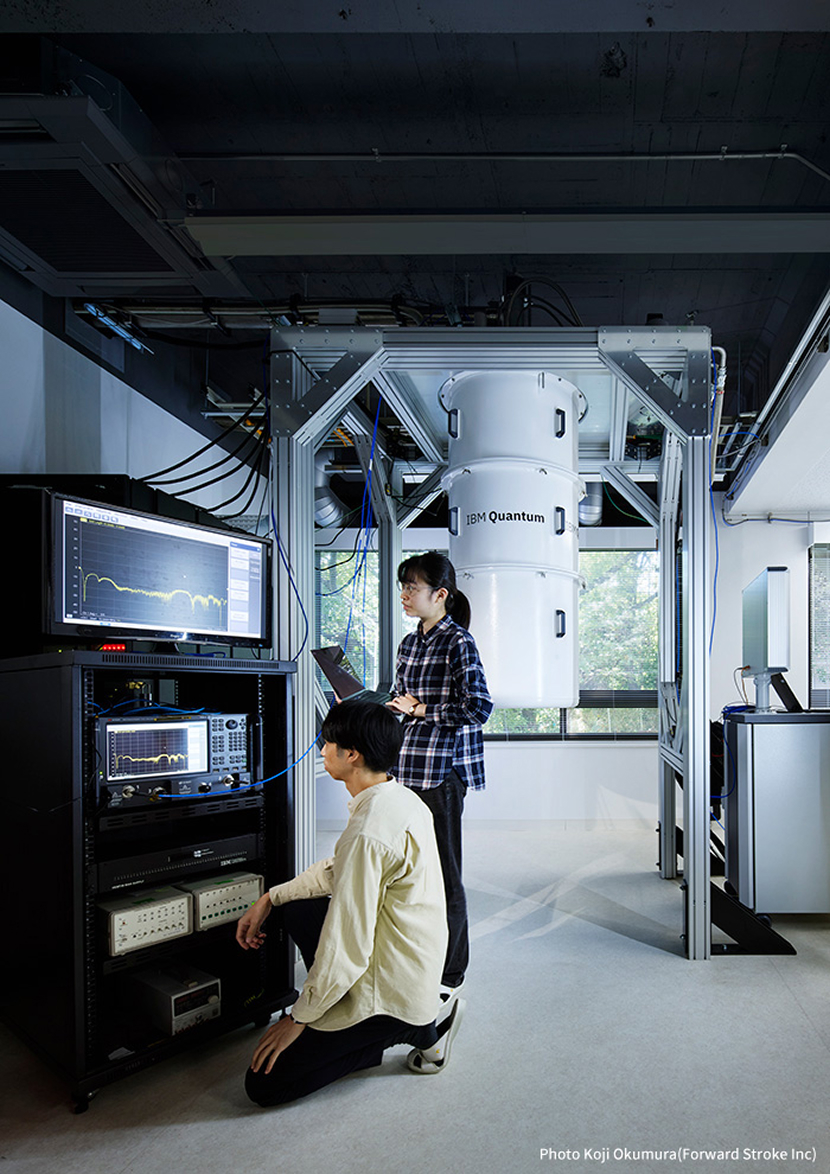
Btrax Design Company > Freshtrax > Quantum Japan: ...
Quantum Japan: A Collaborative Leap into the Future
Japan’s expanding quantum ecosystem is built on more than cutting-edge science, it’s driven by partnership, precision, and purpose.
Japan’s quantum technology sector is quietly revolutionizing this once-theoretical field, a revelation that struck me when our btrax team began supporting a Harvard quantum startup in Tokyo’s vibrant innovation ecosystem. As I witnessed firsthand, Japan is uniquely positioned to shape our quantum future.

Left: John Hayato Branderhorst Right:John Himes
That interest deepened after connecting with John Himes, a B2B marketing strategist who excels at transforming complex technologies into clear and compelling messages, who also happens to have a passion for Japan. Through our conversations, it became clear: quantum is no longer confined to labs and academic journals. It’s becoming a strategic priority and Japan is helping lead the charge.
This article explores how Japan’s quantum ecosystem is evolving, why collaboration is key, and how clear communication across languages, cultures, and industries is essential to bringing quantum into the real world.
Japan’s Quantum Strategy: Where Academia, Industry, and Government Align
In 2021, Japan launched a national network of Quantum Technology Innovation Hubs, with RIKEN leading efforts across quantum computing, sensing, and secure communication. These hubs bring together top-tier universities, research institutes, and corporations, creating a unique ecosystem where breakthrough research can move toward commercialization faster.
A standout example is the Quantum Hardware Test Center at the University of Tokyo, built in partnership with IBM. Here, Japanese firms like TDK and Kyocera are developing next-generation components that could define the global quantum supply chain.
“Japan is incredibly good at turning innovative ideas into well-engineered, real-world solutions,” says John Himes. “That mindset is key to how they’re approaching quantum.”

Source: NASA via Unsplash
Global Collaboration Is at the Core
Japan isn’t just developing quantum technology, it’s helping write the global rulebook for it. The Tokyo Statement on Quantum Cooperation, signed with the U.S., has already inspired cross-border partnerships with companies like Quantinuum and QuEra collaborating with Japanese institutions on real-world applications.
Beyond these partnerships, Japan is taking a leadership role in international standards, preparing to host the IEC/ISO joint technical committee in May 2025 to establish global frameworks for quantum technologies, from performance metrics to governance models.
Through initiatives like Q-STAR (Quantum Strategic Industry Alliance for Revolution) and its comprehensive government roadmaps, Japan is positioning itself at the intersection of innovation and standardization, ensuring its technological vision shapes quantum’s global future.
Why Quantum Needs a Human Story
Despite the rapid pace of advancement, quantum technology still struggles with a perception problem. The concepts are complex, the language is highly technical, and for many outside the field, the impact remains abstract. That’s why communication is becoming just as critical as engineering.
“Quantum can feel like science fiction unless you translate it into something people can connect with,” says Himes. “You don’t need to simplify the science, you just need to humanize the story and show why this tech matters to businesses and everyday people.”
This mindset is especially important as quantum applications move closer to real-world use cases in fields like disaster prediction, climate modeling, autonomous systems, and secure communications. While technologies like quantum computing are still largely in the R&D phase, quantum sensors are currently being commercialized and deployed in industries like aerospace, natural resources, and healthcare.
The companies that succeed won’t just have strong IP; they’ll have a clear, compelling message about what their technology actually does and how it provides value.

Source: RRice/Shutterstock
The Road Ahead: Japan as a Quantum Hub
As the technology matures, Japan is well-positioned to lead in quantum hardware manufacturing, sensor development, and secure infrastructure. These are areas that align with the country’s existing strengths in electronics, robotics, and precision engineering.
What’s unfolding now is more than a wave of innovation, it’s a case study in how national strategy, global partnerships, and cultural mindset can shape the future of emerging tech.
At btrax, we’re watching Japan’s quantum evolution closely, not just for its technical achievements, but for the collaborative approach that’s making it all possible.
Sources
- Quantum Innovation 2025, RIKEN: Overview of Japan’s Quantum Technology Innovation Hubs and their collaborative structure, launched in 2021.
- IBM, Japan Build a Quantum Computing Industry Through University-Corporate Ties: Details on the University of Tokyo–IBM Quantum Hardware Test Center and involvement of Japanese firms like TDK, Kyocera, and others.
- Enhancing Competitiveness – National Quantum Initiative: Information on the Tokyo Statement on Quantum Cooperation and U.S.–Japan international collaboration in quantum science.
- QuEra Announces Strategic Collaboration with Deloitte Tohmatsu to Accelerate Quantum Innovations in Japan: Example of cross-border quantum partnerships and ecosystem development.
- Strategic Partnership Agreement to Develop the Quantum Computing Market in Japan and Asia-Pacific (Quantinuum): Details on Quantinuum’s collaboration with Japanese partners.
- Japanese joint research group launches quantum computing cloud service: Example of RIKEN-led research and cloud-based quantum computing in Japan.
- RIKEN, Fujitsu Launch Collaborative R&D Center in Japan in First Step Toward Realization of Superconducting Quantum Computers: Illustration of Japan’s industry-academia-government alignment in quantum hardware.








